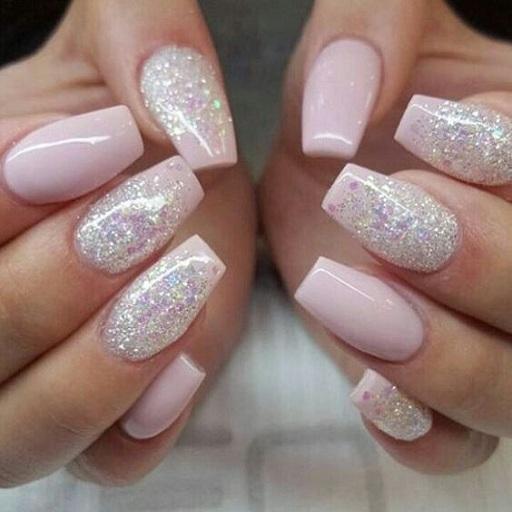Despite the fact that fixing artificial nails has become an important fashion item among ladies, experts warn that the practice has health implications if not properly managed.
Artificial nails are available in different designs and colours. They can either be long or short, and are placed over a lady’s fingernails for beautification.
- The Brief: Israel’s intelligence; preferred candidate; Fayemi under fire
- Banditry: We’re not opposed to security measures
Tonia Johnson, a graduate of the University of Abuja, said artificial nails added glamour to her dress sense and made her stand out from the crowd.
Taiwo Ogunleye, an apprentice in a nail salon in Abuja, said she fixed her nails because she chew the natural nails.
Miss Ogunleye said, “My nails are short, and I bite them often. Fixing artificial nails helps me to keep them in shape because chewing my natural nails poses a great challenge to their maintenance. I therefore go for artificial nails because with them, I am spared the stress of keeping natural nails.”
Blessing Chima, a hairstylist and nail artist, said artificial nails were very close to the natural nails, and that just like hair and eyelash extensions, they had come to stay.
Miss Chima said, “They vary in design and this makes their prices vary. They include acrylic nails, silk nails, glass nails, French tips and gel nails, and they cost between N500 and N2,500; depending on the kind of nails you want and the expertise involved.”
Mary Joseph, a nail artist, advised fellow nail artists to help ameliorate the effects of nail fixing by using good and improved cosmetics.
She said, “Nail fixing may cause accidents to the cuticles, which can also lead to bacterial infections. The artificial nail fixing, if fitted properly, would not be problematic, but fixing it for a longer period could damage the nail.
“Long term use and poorly fitted nails can seriously damage the nail bed and as well hamper natural nail’s growth. The most common problem associated with artificial nails is bacterial infection that may develop between the false and natural nails.
“When artificial nails are applied to the natural nail surface, minor types of trauma to the artificial nails can occur from something as harmless as scraping a nail against a firm surface. This can cause separation of the nail from its nail bed. This allows bacteria and fungus to potentially enter the separated area which could cause infection.”
However, not every lady likes fixing nails. Utonwa Obi, a graduate of the College of Education (COE), Zuba, Abuja, does not like fixing her nails because she feels uncomfortable with them.
She added that nothing could substitute healthy, strong nails, which came about as result of balanced.
Dr Bashir Danmallam, a dermatologist, said he was not in the position to determine if it was good or bad to fix artificial nails as it was strictly an individual’s preference.
However, according to him, when a lady puts nail extensions, there is likelihood of injuring the nails.
Dr Danmallam said, “For you to put the nails, you need to attach the artificial nails to your nails with something. So that thing you use can give you irritation, and from that the nail area can get an infection.
“It can destroy your nail and the nail would break easily because that thing you are putting; you are harming the nail with whatever you are using and the nail can become suffocated.
“The other factor is from personal hygiene, because you cannot cut your original nails, so you are bound to have things underneath the nails and this can trap infection because we use our hands for hygiene. We use our hands to wash our private areas when we bath or when we touch.
“The most important thing to us as dermatologists is the fact that you can destroy your original nails and then you may have issues with them growing back or becoming normal again. They can change colour, they can break.”
According to him, these additional fingernails which are usually longer can trap microorganisms which could be transmitted.
Asked if one can contract HIV/AIDS from fixing artificial nails, he said, “No; for one to contract HIV/AIDS there has to be an open entrance where an infected blood or fluid would go into one’s skin. The skin is the protector of the whole body. Nothing can penetrate your skin if it is not cracked.”
According to him, nails grow from the proximal end; that is from the end where the skin starts, and that, “That is why at some point you want to cut your nails because they have grown out. And if you are to trigger any problem there, you may have issues with the nail growth.
“The nail is supplied with blood vessels from under the nail. So under the nail where the skin is, it supplies and feeds the nails. So sometimes what happens is when you use some of these things, they can compress and suffocate. This reduces blood supply to the nail, thereby strangulating it and killing it; that is why it is easily breakable.”
He added that, “Now that a lot of Chinese trash is used. Maybe the gum you are using to put the nails is not good, maybe it is sub-standard. So these are other things, but not as medically important.”

 Join Daily Trust WhatsApp Community For Quick Access To News and Happenings Around You.
Join Daily Trust WhatsApp Community For Quick Access To News and Happenings Around You.

